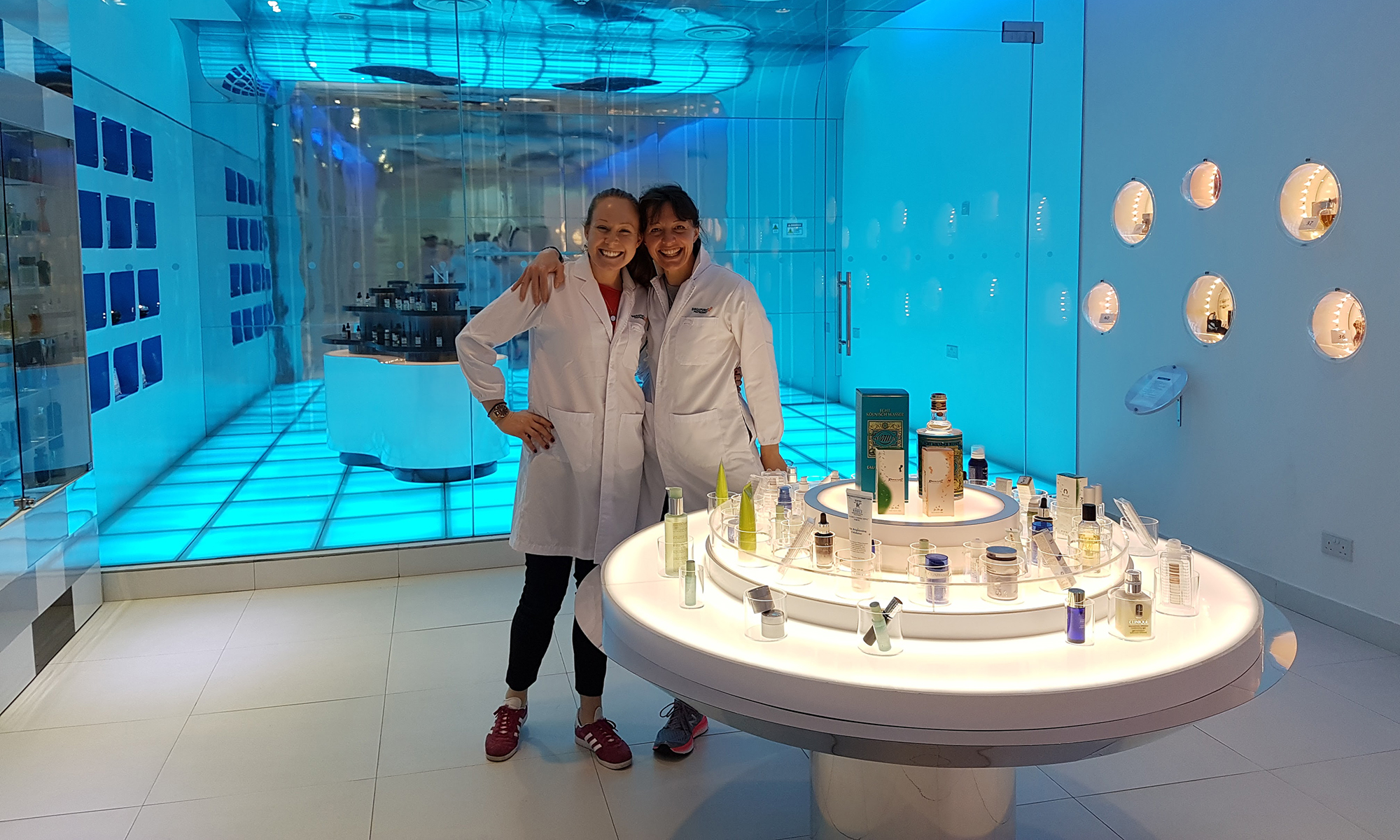Did you know that our science courses equip you with the skills you need to secure a job, even outside of the cosmetic industry? What if we told you, you could even become a pilot? LCF BSc Cosmetic Science alumna, Francesca Cradduck has done exactly that. After featuring in LCF's top viewed video on 'How to make a lipstick' and an incredibly successful career in the cosmetic industry in both the UK and Australia, Francesca took the leap of faith and followed a long life dream of becoming a pilot. We caught up with her to find out about this unexpected transition and how it proved to be easier than first thought.
Tell us about your background and why you decided to study at LCF?
At school I was pretty strong in sciences but I had no idea what I wanted to do at all. It was actually quite random. I was reading the LCF prospectus and I saw the Cosmetic Science course and I thought ‘that sounds absolutely perfect’- I’m passionate about cosmetics but it’s also technical as well. I applied for a deferred year and took a year out, then decided yes this is definitely what I want to do. And that was it!
When you finally arrived in London at the College, what would you say you enjoyed the most?
The location was amazing, Oxford Street was incredible. The College itself is pretty prestigious and I know a few fashion students who studied there and loved it and its very well known. I just loved it.
What did you love about London 10 years ago?
I loved that it was so diverse and so busy. You could travel only 20 minutes and you feel like you’re in a different country. You may not want to be there for 50 years of your life, but to study and have fun there, was incredible.
Wow, so thinking back 10 years ago then, do you have a fondest memory or a favourite time?
That’s tough! Formulating was so much fun. I remember our first ever product that we made was a foot spray and we had it in a bottle and everything. The whole class was like ‘wow we’ve made a product to go on the shelves’ and everyone was really excited.
I love how it was a foot spray as well, not a lipstick, but a foot spray! Are you still in touch with any of your classmates or anyone that you studied with?
Yeah! One of the girls I studied with is still my best friend and she comes out to visit me in Australia. She is still in the industry and she works for Coty. Some of my other classmates I end up bumping into at conferences, so whenever I’m sent to Europe to a conference I end up seeing them there which is really nice.
Did a lot of your classmates stay on to work in the industry then?
I’m pretty sure most of them did. In fact, that is what I was going to say about the BSc Cosmetic Science course itself - it really makes you employable. Most people when they do a degree, they might not ever use it again. With this course, as its so specific, 99% of people will still stay in the industry once they have graduated.
That’s great – do you remember making the lipstick film? How did the process come about?
I don’t think we were too sure it was going to be used for, so we were all really light hearted and didn’t take it too seriously. I remember at the end, someone said “Oh, this is your colour, you should put it on!” So then one of the other girls put it on me. I don’t even think we knew it was recording at this point but at the end I turned around to the camera and kissed, just as a joke. When we finally watched it in class, we were all absolutely dying and thinking ‘Oh no, this wasn’t meant to be in it!’
That is so funny! know you’ve had a career change recently, which we’ll talk about later, but out of curiosity do you still know how to make a lipstick after all that?
I definitely remember how to make a lipstick. You have a blend of waxes, some to make the stick hard and then you have to disperse the pigments in the solvent. Then you melt the wax, homogenise it all together and pour into the moulds. You can add any extra ingredients you want i.e. for a longer lasting lipstick. I know in the video we used a Bunsen burner, but you wouldn’t usually use that in the industry. It just makes the bullet nice and shiny.
How did your career path pan out straight after university?
I was lucky really, an ingredient distributor contacted Danka, and they were looking for a Technical Sales Rep to join their distribution business. Danka put me in contact with them and I had an interview and got the job. I was then a Technical Sales Representative for a UK Speciality Ingredient Distributor, looking after UK customers. This was funny because a lot of the customers were my old classmates. I was there for about two and a half years, then I decided to try and make a life in Australia with my partner. When I got here I realised how valuable the degree was as it is so specialised, and in Australia there is a huge skill shortage of Cosmetic Scientists. There are no other courses here that are that specific so I managed to find work within weeks and they even sponsored me to stay. I ended up working as a Chemist that creates the small little hotel shampoos, body washes etc.
The things that we all like to help ourselves to….
Yes! So that was fun to be back in the lab and then unfortunately that company closed its labs and moved to China so we were all made redundant. After that I went back into sales and joined another distributor that was the Australian version of the one I worked with in the UK. That’s the job I’ve been doing for the past 7 years and I’ve been looking after Victoria and Western Australia.
It sounds so fun and its really interesting to hear you talk about how employable the course makes you. It’s really interesting how you can do this degree and move to the other side of the world.
Yes, particularly in Australia they are always looking for formulators as there is such a shortage. It opens up a lot of doors for you.
Do you think the industry has changed over the past 10 years of your career? Scientifically and perhaps logistically. If so, how?
It has. Australia is different as the industry is a little bit behind. When I first moved here it was like I had been living in the future but again that was also an advantage. Natural and organic is always a hot topic but it’s now slowly drifting to being sustainability focused, and how being natural and organic isn’t necessarily better than being sustainable.
You can get a synthetic ingredient that is actually more sustainable and overall better for the environment than a natural product. In terms of Marketing, last year they had a big reform in regards to putting ‘Free From’ on products. If an ingredient is permitted to be used in cosmetic products but then the marketing labels that ingredient as ‘Free From’ then they’re actually damaging that ingredient by scaremongering so that has been regulated now.
And that is across the board?
It started in Europe and spread out.
So, is Europe at the centre of cosmetic science developments would you say?
Yes definitely, but they take a lot of inspiration from South Korea. South Korea is huge for the cosmetics industry and they’ve got some of the worlds best products over there, so that’s where a lot of the European inspiration comes from.
-
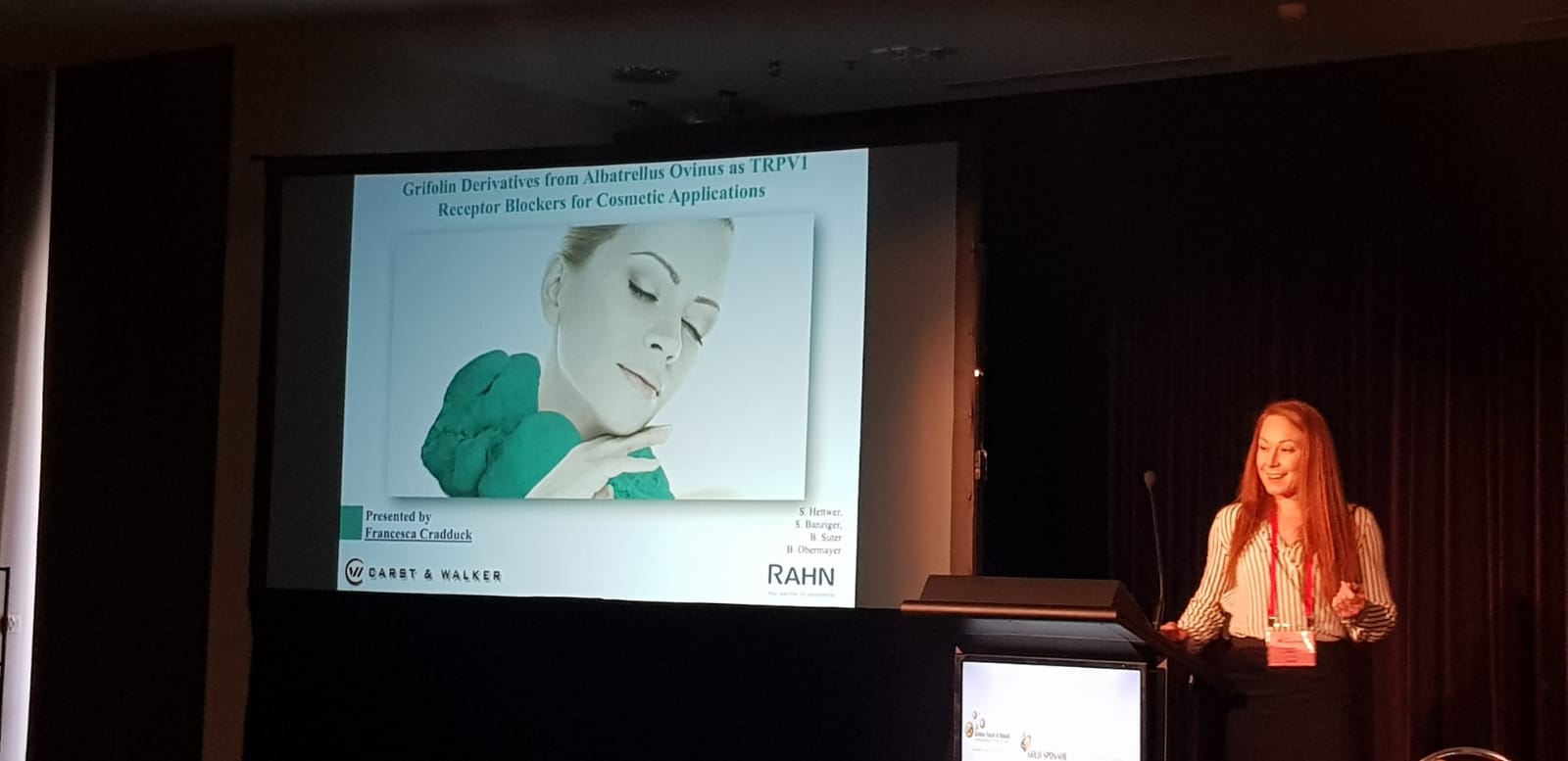
Francesca Cradduck - BSc Cosmetic Science almuna
-
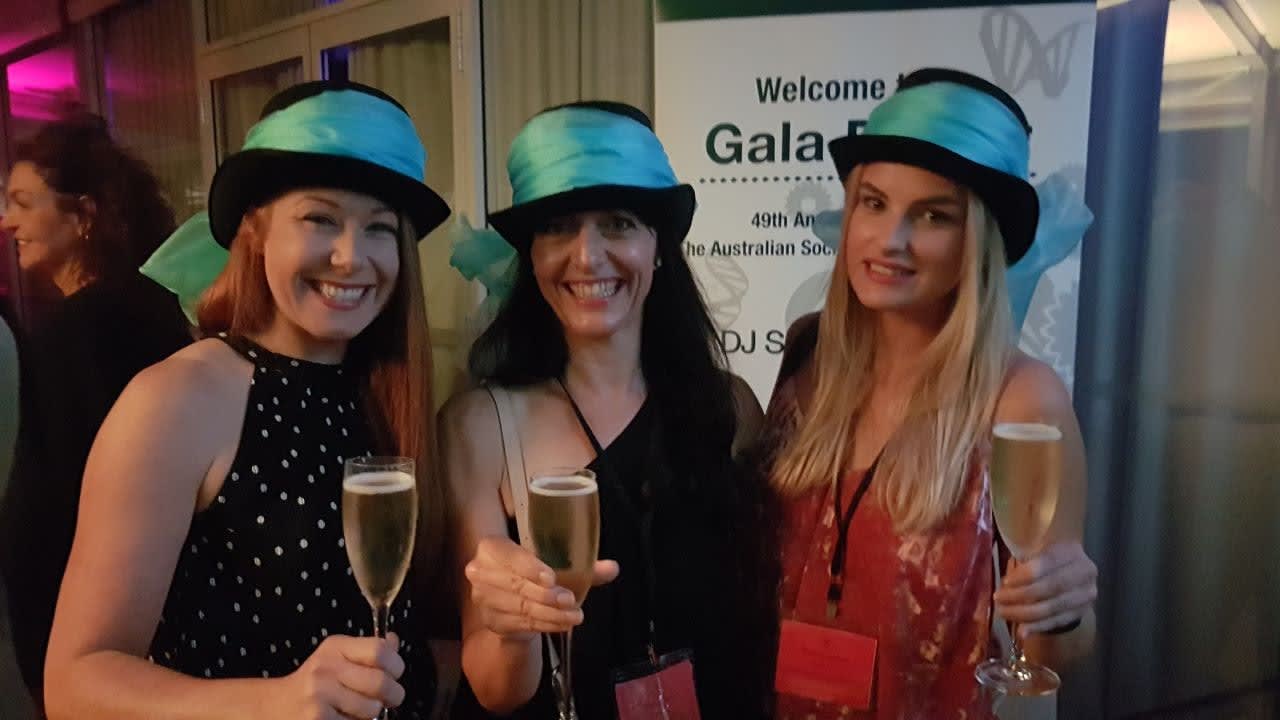
Francesca Cradduck - BSc Cosmetic Science almuna
-
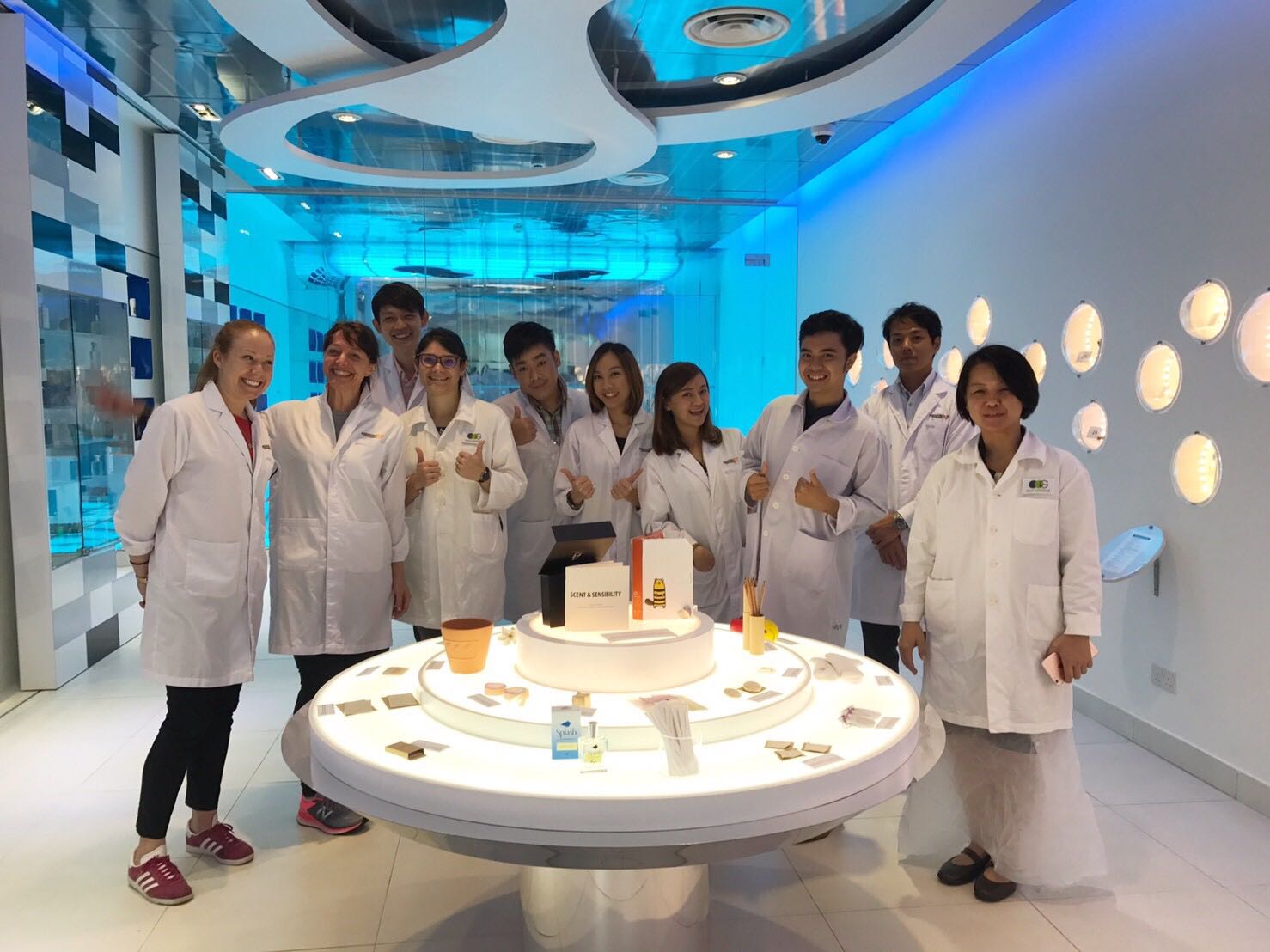
Francesca Cradduck - BSc Cosmetic Science almuna
-
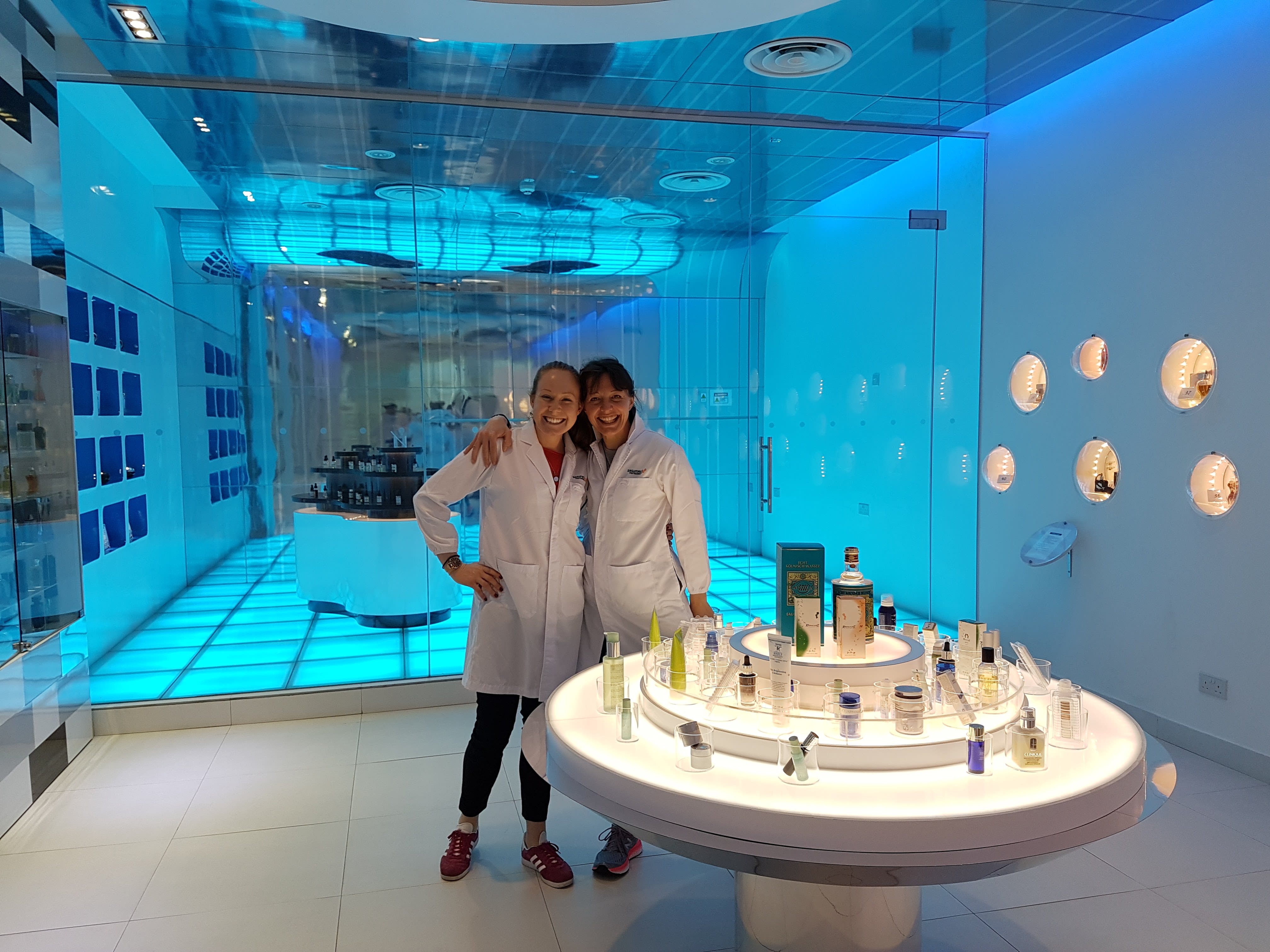
Francesca Cradduck - BSc Cosmetic Science almuna
So, as we mentioned, you recently embarked on a career change. You’re becoming a Pilot!
When we found out what you were doing now we were thinking ‘What!? How does that happen? That is incredible!’ Can you tell us about it…
Yes - it was quite a big side step. It’s one of those dinner conversations where people ask ‘If you didn’t do what you do, what would you do?’ and I always said I would be a Pilot. I was never serious as I thought it would be near on impossible, but my sister works for British Airways and she planted the seed a few years ago and said ‘You know, you could actually do it.’ I thought no, I couldn’t - I’ve never even flown on a plane with a female pilot before.
I had been in this industry for so long and I was looking for a new challenge and I didn’t really know where to go, then I thought of what my sister had said and I decided to put the ball in motion and got a couple of private flying lessons and absolutely loved it. From that point I was sold!
An opportunity came up to apply for a Cadetship and I gave it my everything – I did some online courses and refreshed myself in maths and physics and somehow managed to get a place on the Cadetship! That was only back in February of this year.
That is incredible! You mention about female pilots and I’m trying to think, I don’t think I’ve ever known a female pilot or been on a flight with a female pilot. It sounds like a very male dominated industry; how does that compare to Cosmetic Science? Are there more women in Cosmetic Science?
There are definitely a lot more women in Cosmetic Science as our class was all female and now I am the only female in my Cadetship intake. Then when I moved into industry I noticed it was actually quite heavily male. I guess the sciences are relatively male orientated but then being cosmetics, there is also a feminine appeal. But yes, the aviation industry is very male dominated. I think there are only about 5% of female pilots actually. Although, my current flying instructor is a female.
How long is your course? When will you be fully qualified?
Well it’s supposed to be a fast track 18-month course but unfortunately due to Covid-19 it has been extended and we had to stop flying in August. Its only since Melbourne opened up again this week that we have been allowed to start flying again. We’ve been doing online theory the whole time.
When you practice, how does that work? Are there two of you in the plane?
You get allocated an instructor. At the moment I’m only learning on a small, single engine CESSNA 172 aircraft. You do about half an hour of theory on the ground before each flight. First, it’s the basics of flying straight and level and basic manoeuvres, then you focus on flying in a circuit so you can practice multiple take off and landings. Once you’re confident with that, your instructor gets out and you go off and do your first solo flight. From there you progress to cross-country flights and then you eventually do your flight test to get your licence which is similar to a driving test.
You make it sound so easy!
The theory is really difficult! We sit an exam almost every second week. It’s been so long since I was last at school and I’m the oldest one on my course. I find that a little more challenging just because it’s been such a long time since I’ve been at school. It’s really fun though. It doesn’t feel like work.
Thinking back to the Cosmetic Science course at LCF, would you say that equipped you for this career change in a way? Is there anything in particular that you learnt at LCF that has helped you succeed in your new venture?
Yeah there are actually a couple of things. It seems like they are very separate, but being a chemist and being a pilot has a few cross overs. In both you need to be very procedurally minded and logical. Following a formulation step by step is the same as following a check-list in terms of making sure you don’t miss something off and that helped a lot – the Cosmetic Science course made me think very logically. I was also thinking that they are both very safety focused industries and that helps with your risk analysis mindset, following standard operating procedures for all of the machinery and things like that, so it helped a lot.
There are also of course, a lot of soft skills that you learn that massively help. Back at university we did a lot of presentations during that course at LCF and that’s helped me throughout my whole career actually. I did a lot of presentations with previous company I worked for.
-
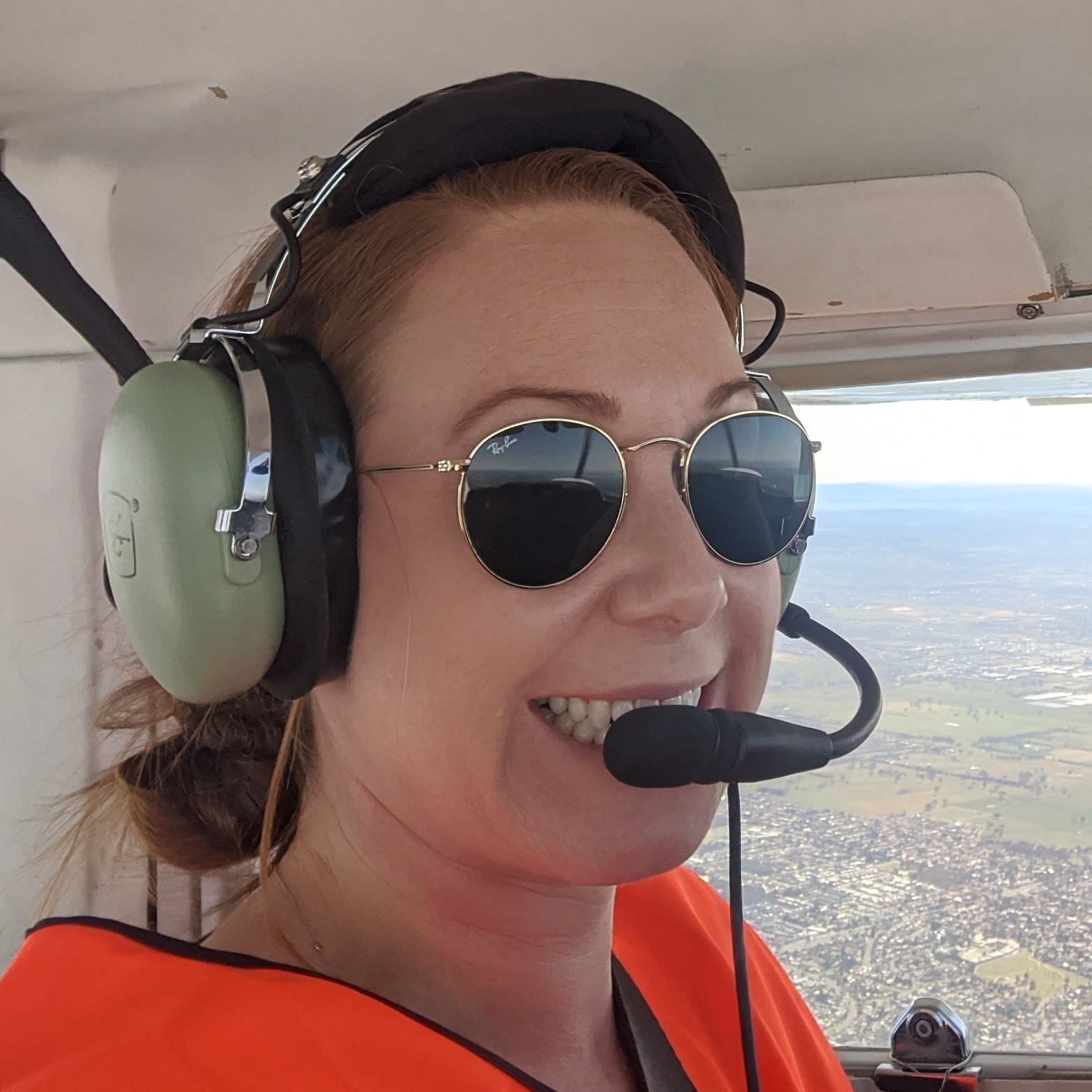
Francesca Cradduck - BSc Cosmetic Science almuna
-
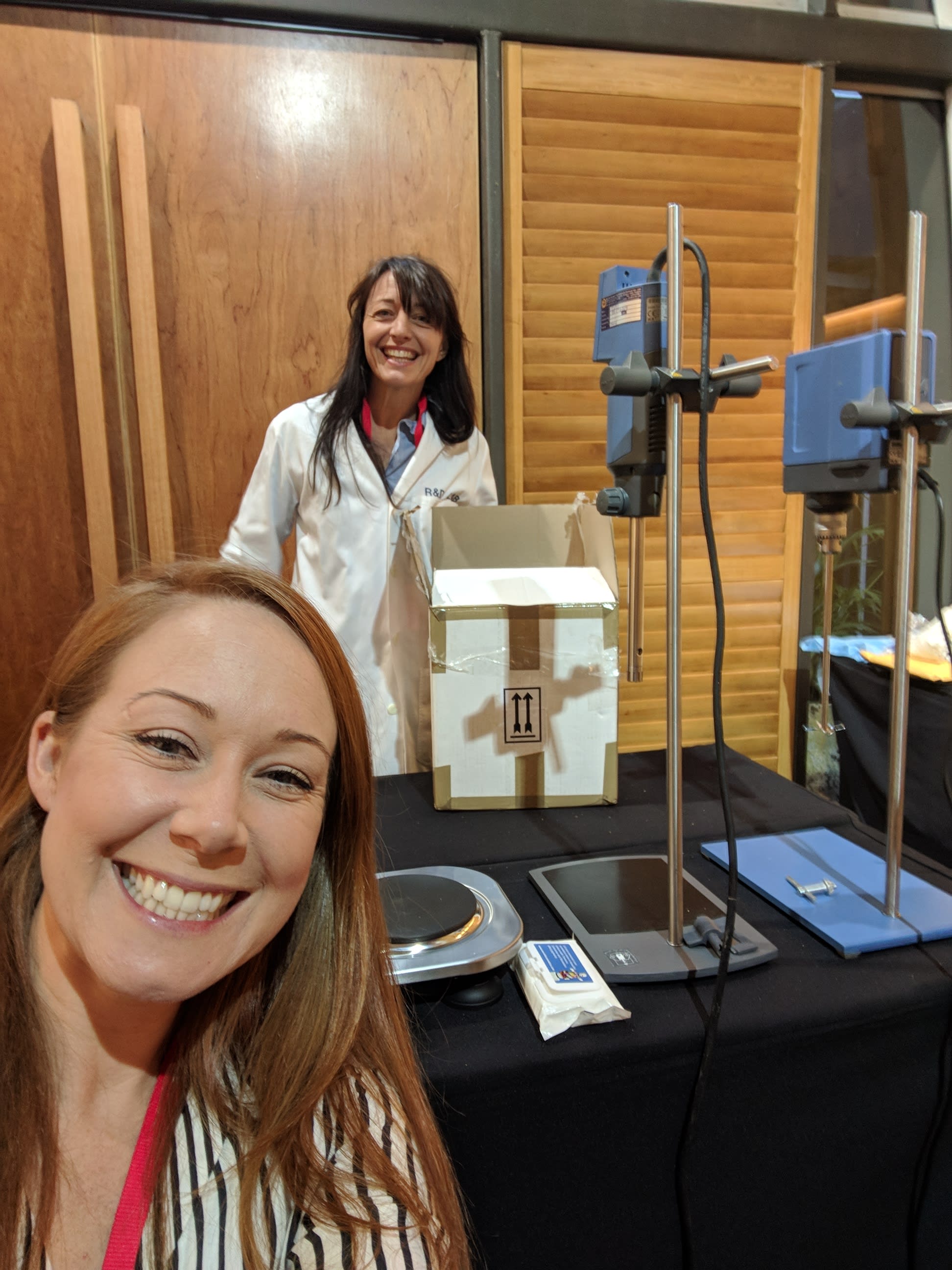
Francesca Cradduck - BSc Cosmetic Science almuna
-
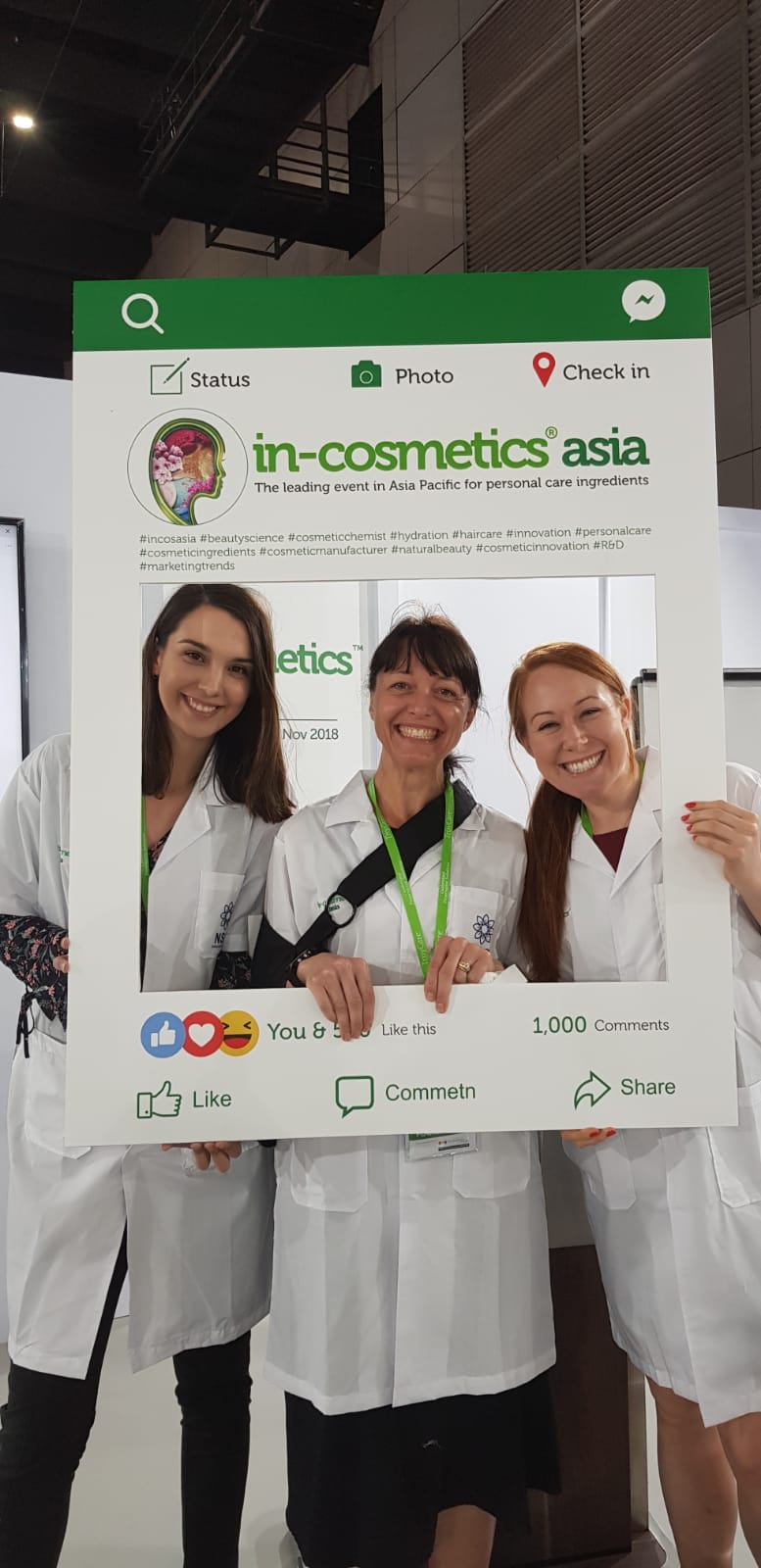
Francesca Cradduck - BSc Cosmetic Science almuna
That’s really good to hear. I don’t know if you’ve seen that recent meme that’s been going around ‘Where it started vs where it’s going’ but we thought of that straight away. The idea that you can go from studying Cosmetic Science at LCF, spend years in industry, and then ultimately be a pilot is fascinating.
We don’t want to underestimate the fact that the skills you learnt whilst you were essentially studying Fashion – some people can see Fashion as quite a frivolous thing to study and the amount of students we meet that say ‘my parents wanted me to become a Lawyer but it was my dream to study Fashion’ but there are so many skills that you can take from studying a creative degree.
Of course, Cosmetic Science is a science - it’s a serious thing! The lighter side of it is that people are obsessed with makeup and cosmetics with bloggers and content creators etc but when you join the course and hear the words ‘get your lab coats on’ people are sometimes shocked. The skills are transferable in any industry and you can take that into something completely different and unrelated.
Yes, seemingly unrelated. So many people say to me ‘So how did you go from Cosmetics to Aviation?’ but like you say, there are so many skills you learn that you can take anywhere.
Exactly! So, in terms of thinking ahead to the new generation of Cosmetic Scientists, what would your advice be for people that are thinking of joining the course?
Well one of the most valuable parts of the course was the third year of the sandwich course when you get to go into industry - that was really invaluable and I encourage students to make the most of it. You get to test out different areas of the industry and confirm the area you want to pursue. A number of our class even worked abroad, I lived in Sweden for the year and it was a brilliant experience. When you come back and do your final year you will have a good idea of exactly what it is you want to do.
I would say go for it. It’s a really, really fun industry. Yes, it can be serious but you have some actual tangible products at the end of it. When you see your product on a shelf no matter what you do, if you formulated it or whether you helped with the ingredients or the packaging, to actually see the product on the shelf is awesome.
Speaking of product, what’s been your favourite product that you have helped create or been a part of?
Because I’ve been on the supplier side I don’t always see the finished product but seeing some of the brands we work with really grow and make the big time is amazing. There was a brand we worked with, Aesop, they’re an Australian brand and all of a sudden, they have opened up into several countries. It’s great to watch them grow and become so successful.
I love Aesop!
Me too.
Before we wrap it up, is there anything else you would like to add?
One thing I was going to say actually regarding the course is the fact that it is very industry focused. All of the lecturers and tutors are from industry, they’re all professional with loads of experience. It trains you up really well to go into industry. You can go straight in and it doesn’t matter which area – if you went into a formulating role, you’re at an advantage because you’ve already done a lot of marketing and packaging so you know the whole industry and full circle. I know a lot of class mates went into the marketing side but they already know so much about the ingredients so they are at an advantage also.
So, if someone was on the fence you’d say go for it, right?
Absolutely, definitely. It’s pretty recession proof too – especially during these uncertain times you’re very safe and very likely to still get a job. Everyone always wants to buy lipstick, even if they only have a spare £20 in their purse!
And now we need to be washing our hands a hundred times a day…
Exactly! Hand sanitizer, hand lotion. All of that.
